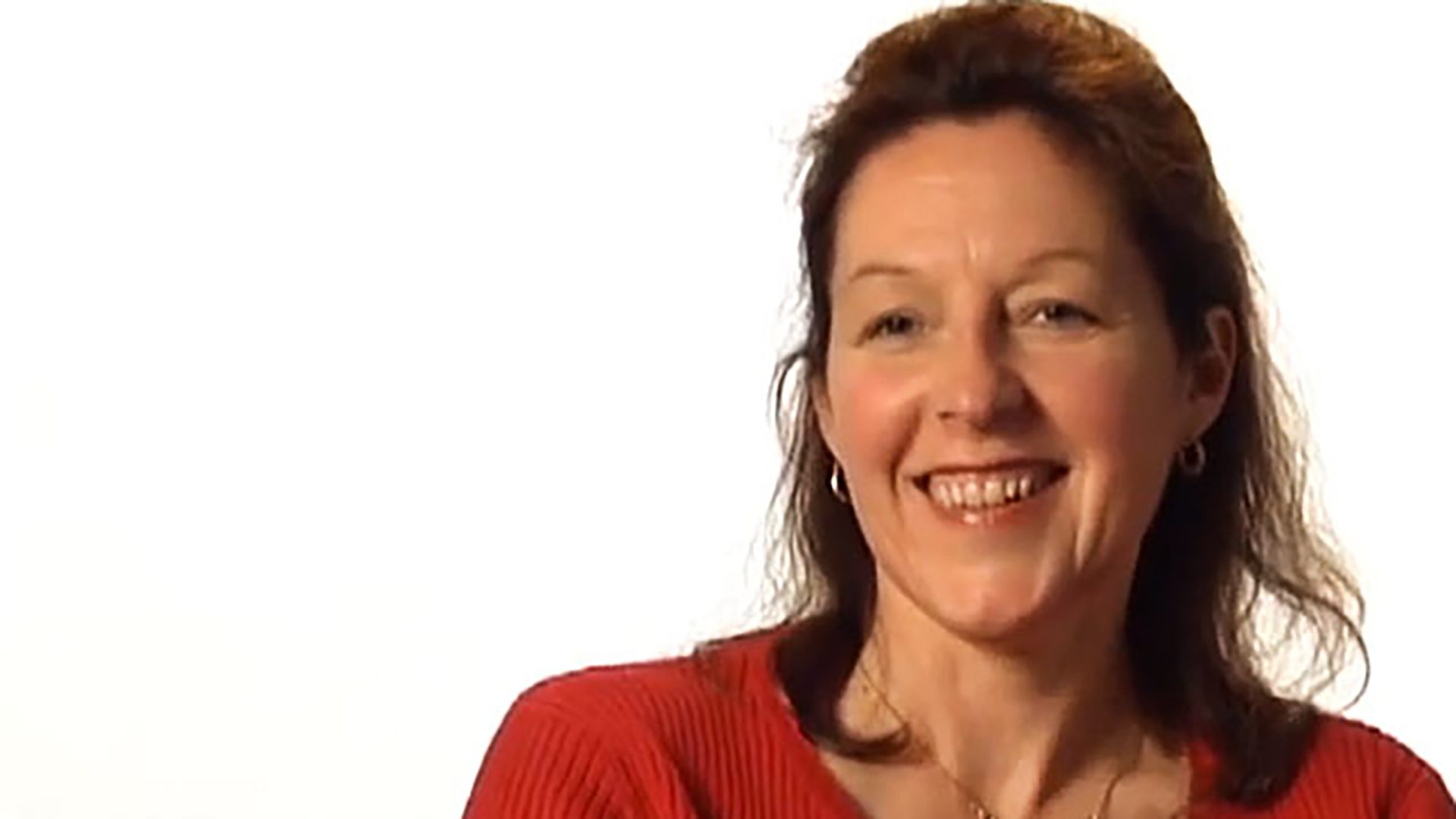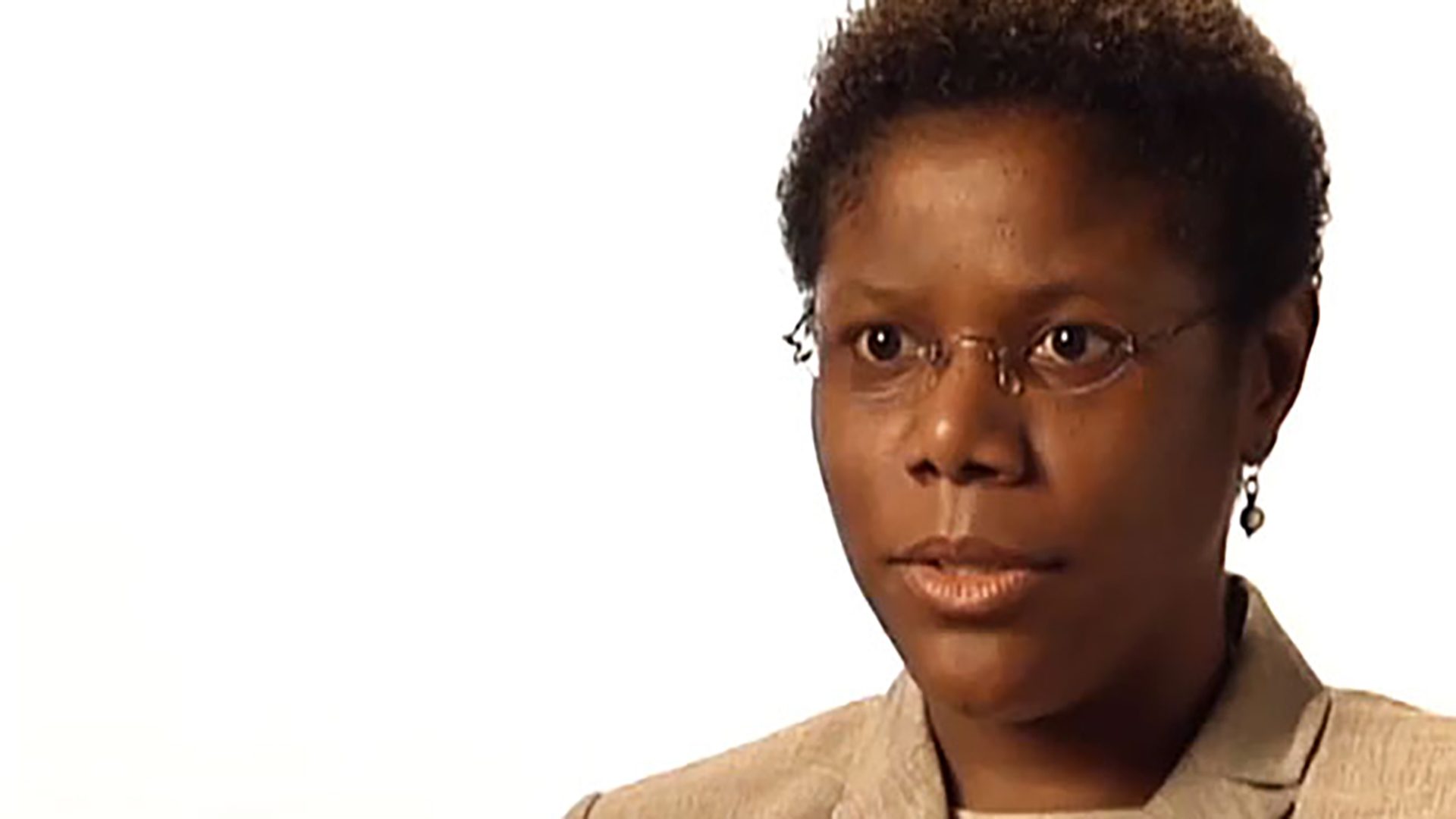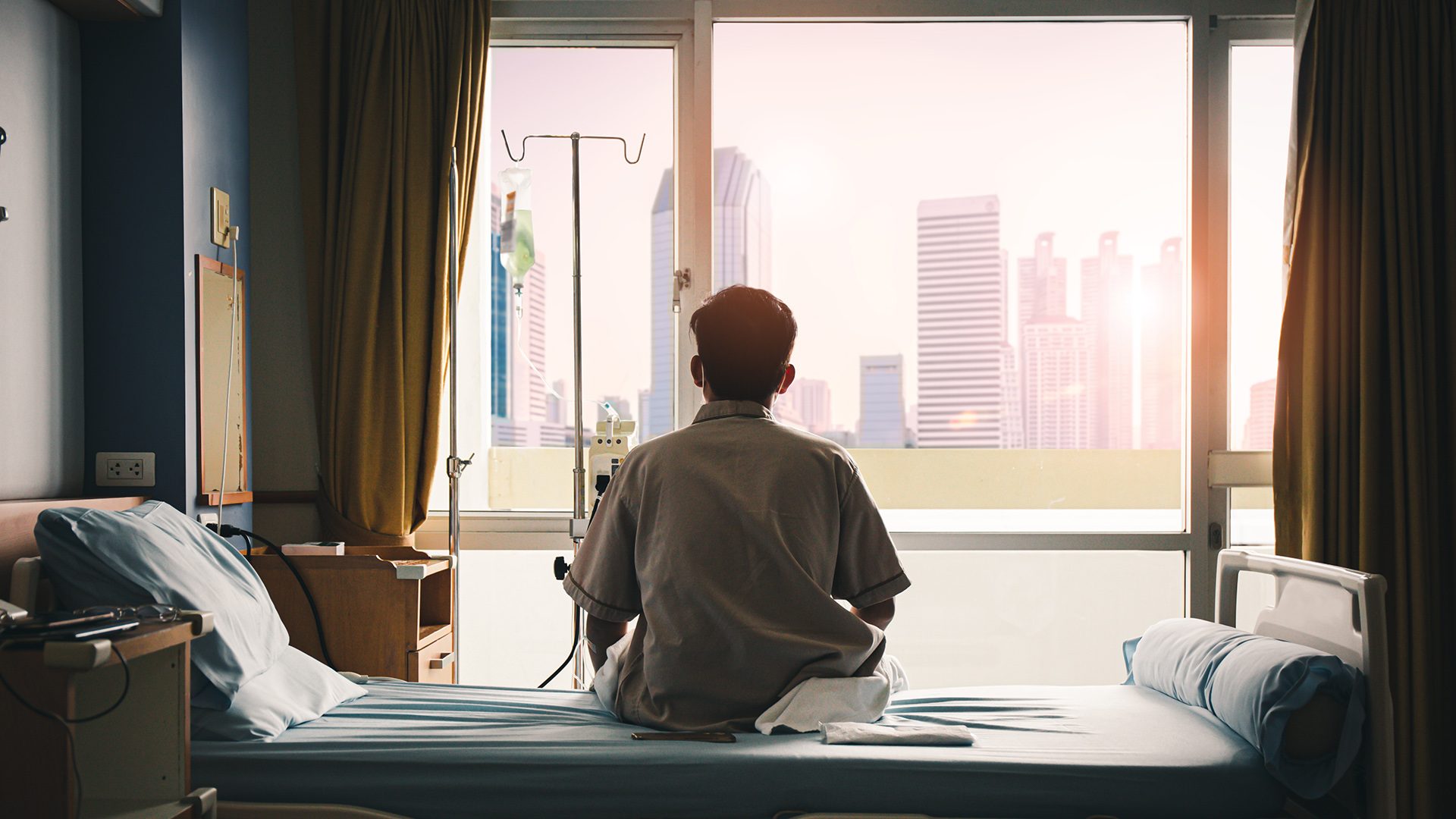Survivor Interview – Jill C.
Hodgkin’s lymphoma survivor Jill discusses emotional support, relationships, and aging with cancer.

I became a survivor in 1983, and I had mixed cellularity Hodgkin’s disease, Stage IIB. I had a large nodule lump on my neck. It took about a year to finally get a diagnosis. I ended up spending a week at the cancer center, having all kinds of tests, procedures run to basically rule out and figure out what kind of cancer we were dealing with. After all that testing was performed, they came to me and told me that it was Hodgkin’s disease mixed cellularity. I had four different kinds of cancer cells just in the neck region. What they recommended was four different cancer carcinogens that were gonna knock it out of me. That’s basically what I did. I had chemo. Then I had radiation. Then I had chemo again. So, I had four bouts of chemo, 22 days of radiation, and then another four of chemo.
Because of the radiation to the neck area that I had; my thyroid was affected. It eventually will give out, and I will have to have this thyroid replacement. The change to my thyroid has been always the coldness. Getting your levels right has always been a challenge. I always am complaining to the doctors that I need more of the Synthroid to bring my levels up so that I’m not cold, my hair’s not falling out, or I’m able to go to the bathroom properly. That’s something that you have to be watchful and check often. I’ve been dealing with it since my mid-twenties. That’s something they say to look out for, and I probably pushed the envelope a little bit with that. I should have waited until it conked out a little more. In my case, they’re still supplementing it, because mine is still working. It’s not fully conked out. It’s a tricky thing to evaluate and have your levels right.
It was scary for my fiancé and I. At the time, we had our wedding set. We had to postpone it because of my illness. It changed our relationship somewhat, because he had to work through that with me. It wasn’t easy. Back then, for radiation, I had the red stripes, because I was radiated from chest up. I went to work, went to the grocery store and I got looked at and people wondered what was up. I would tell them, “It’s my racing stripes. I’m proud to wear them. I’m getting better.”
It wasn’t easy for him. He had to drop me off at the hospital, leave me there for a week, come back and forth, and support me through that time. My mother flew in and also was there throughout the testing and everything. Our love was young and innocent at the time. We were in our early 20’s, but we knew we had a commitment, and I never feared that he would leave me. It wasn’t easy either. I had to fight for him, because I could tell he was pulling away because it was scaring him. So, I tried to do things as normal as I could, and that’s hard. I didn’t take disability. I worked a job. I went grocery shopping. I took care of the household as much as I could, even though the chemo and radiation took a piece out of me, because it just tires you and wears you down. But all in all, he hung in there with me. We got married the next February, had a nice, big wedding and both families came and participated. It was a great time. I think when you go through a crisis of that magnitude, it pulls you together, because you become a team that’s gonna fight through the thick and thin of it all. That’s just the way we are and have always prided ourselves on that.
At the time when I became ill, I was working for a temporary company. I was temping for them and was let go, because I was unable to work the hours I needed to work. At the time when I was going through it, it was scary for everyone. It was a real blow to my ego. I didn’t have any insurance coverage, so I was financially in debt for quite a few years. I was so tired, worn out and struggling for my life, but I would have loved to have fought it. I could have gotten an organization of some sort, but I was young and innocent. It was more a priority to get better than to fight a company over letting me go. Now I do have those rights, and if that had only been in place, that would have been great. I’ve attended the Keys to Survivorship Workshop, and you can go all the way. There are organizations now that help you. That would have been great if it’d been back then, when I really needed it. The American Cancer Society gave me five or seven hundred dollars and the Leukemia Society kicked in, too. So I did have a little bit of support, but it was financially tough for a while. That basically changed my whole life. I never looked at money the same way. I used to be a big spender, and now I’m very thrifty, try to make my money go as far as I can. The illness, early on, changed me in that respect.
I feel it’s very important that we get more information out to the public, so that people know what to do, different avenues to follow, and different ways to be strong throughout their process of fighting the illness, fighting the system and all the red tape that goes with it. What’s so hard is when you’re sick, you’re down and you’re trying to just get through the days. You almost need an advocate, someone else that’s gonna take over that part for you. I was lucky my mom did a lot of that for me. I was able to stay on top of bills and get things paid off. I really think there need to be foundations or ways that cancer survivors can get their hands on money to either pay off bills, go back to school or buy a house for the first time. When you’re hit with such astronomical bills and things that you don’t ever anticipate early on in your life, it sets you back a little bit. So that would be great. At a government level, keep it going strong. Make it work, is what it comes down to.
It’s terrific to be with other survivors, learn about what goes on with their lives, how far they’ve come, how they’re surviving and what makes them tick. I can’t get enough of that. It makes a lot of difference to connect with other people that have survived. Not a lot of people will open themselves up and let you know that this is what they’ve gone through, unless you’re in a safe environment that’s put forth for cancer survivors. The workplace has a “hush, hush, don’t tell anybody” kind of thing. In my case, when I was diagnosed, it was all over me. There was no hiding that.
I love being involved and being able to help others. After I was diagnosed, I hooked up with a young cancer patient with Hodgkin’s disease through a church bulletin. This young girl needed to have some help with her kids. We have been buddies for over 15 years. She now lives in Virginia, but we still hook up. She has not been as fortunate as I have as far as her health, but she has the best outlook. I drag her along as much as I can, and we have a good time. If it weren’t for my illness and for getting better, I could never have done that. There was a time when I ran a support group myself. There’s a point where you get feeling better about where you’re at and when you can start helping others. I think that’s important.
It’s a part of my life. It’s a part that I’ll always have and be able to share with others. That’s important, because anything that rocks your world or shakes your life up that you can get through and be stronger for it… that’s worth sharing with the rest of the world. I look at it as “I’m helping. I’m making someone see that they can be as strong or that they can cope a little differently and get through it.” That’s huge.
Survivorship means that we’re here to go the long haul. We’re here to make a difference in the world, to show the world that it can be done and that you can live a long, healthy life and take good care of yourself. It takes the know-how, the spirituality, the positive people, being positive. Put out those positive vibrations and good, positive things will come back to you. I’ve always thought that. I’ve always tried to project that to others. In doing so, you attract the right people.
My name is Jill Collins. I am 43 years old, and I’m a 21-year cancer survivor of Hodgkin’s disease mixed cellularity.

